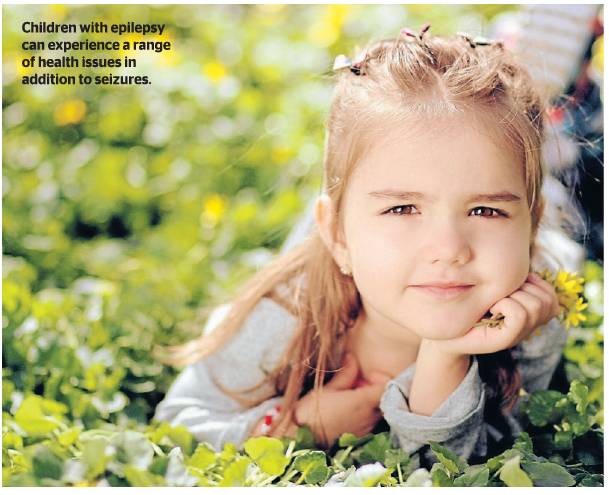Meeting the challenges of living with epilepsy
Diagnosing and caring for a child with epilepsy can be challenging for the whole family.
More than 250,000 Australians are living with epilepsy and at least 800,000 people will experience epilepsy during their lifetime.
Epilepsy can start at any age, although it is more likely to be diagnosed in childhood or in senior years. Children represent about 40 per cent of the population with epilepsy.
There are many types and syndromes of childhood epilepsy, which have differing seizure presentations.
“Caring for children going through the challenges of diagnosis can be difficult, but knowing the type of epilepsy can help guide treatment choices and inform prognosis,” says Tina Furse, clinical nurse specialist in paediatric epilepsy with Epilepsy Action Australia.
Furse says that while epilepsy management focuses on seizure first-aid and safety, it is recognised that children with epilepsy face more learning and behavioural challenges than the average child.
However, having epilepsy doesn’t mean a child can’t thrive academically.
“Childhood epilepsy is not just about the seizures; it can also affect learning, memory, social skills, relationships, behaviour, organisational skills and mental health,” Furse says.
“The management of epilepsy is not just about medication, but requires a holistic needs assessment taking into consideration the impact not just on the child but the whole family.”
The unpredictable nature of seizures also has an impact on siblings and family members. “Siblings often miss out due to appointments and can feel that the parent is spending more time with the child with epilepsy as they need increased supervision,’’ she says.
‘‘It can also result in last-minute cancellation of social or sports activities or cause them to be late for school. Witnessing seizures can also be scary for siblings.”
Epilepsy Action Australia provides support for families in a variety of ways. This includes access to specialised nurses, an Epilepsy Nurse Line (phone and email support) and online tools such as MyEpilepsyKey and Strong Foundations.
“We identify needs and work towards improvements in the quality of life for people living with epilepsy and their families,” Furse says.
“Epilepsy Action Australia nurses can guide parents through the challenges of diagnosis and explain tests – what they mean and what to expect.”
MyEpilepsyKey provides comprehensive information and access to specialised resources. Services include seizuremanagement plans, professional education and a seizure diary, which helps families keep track of their child’s epilepsy.
“Recent studies reveal 50 per cent of children with epilepsy will experience anxiety disorders,’’ Furse says.
‘‘ Many factors can contribute to a child feeling anxious, some directly related to epilepsy and others related to cognitive, psychological or social influences.”
The seizures themselves can make a child feel anxious.
“A common concern for people with epilepsy is the unpredictability of when and where a seizure could occur. In children, this may present as an over-dependence on a parent, perhaps leading to a social or separation anxiety disorder,” Furse says.
Families can access information and resources about anxiety in MyEpilepsyKey at epilepsy.org.au.
“Experienced epilepsy nurses are also available to support both the child and the family to meet individual needs and achieve optimal outcomes,” Furse says.
